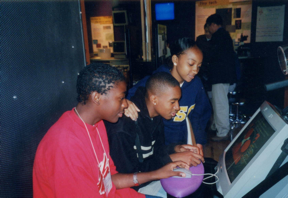Research Tools
BMWA creates and collects tools that link research, practice, and policy to open pathways to college and careers for low-income, immigrant, and ethnic minority youth. We invite you to join BMWA partners--students, families, schools, community programs, and universities--in using these tools to ask your own questions and build common ground among researchers, educators, evaluators, and policymakers.
The Bridging Multiple Worlds Toolkit is a resource for research, programs, partnerships, and policy analysis. The most recent version of the Toolkit appears in Bridging Multiple Worlds: Cultures, Identities, and Pathways to College (Cooper, 2011). It describes Bridging Multiple Worlds Theory, compares it to related theories, and provides sample questions, coding formats, and key findings about how diverse youth navigate pathways across their cultural worlds to college and careers. The 3rd edition of the toolkit, including examples from the new generation of BMWA research partnerships, is in preparation.

Samples of Bridging Multiple Worlds Tools (with links) are listed below. Feel free to contact us about other BMWA tools or to share your own.
Surveys for middle/high school adolescents and college-age students include questions about demographics; aspirations; math and language pathways; and challenges and resources across family, peer, school, and community worlds:
• BMW Survey for College Students
• Southeast Asian American College Student Experiences (Phommasa, 2014)
Program Activities for Middle and High School Students Building Pathways to College and Careers with Embedded Research Tools
• Who Helps You? Who Causes You Difficulties?
• Pre-Activity and Post-Activity Student Surveys
• Instructors' Guide with Sample Consent Form
Longitudinal Case Study Template
BMWA and our partners have developed Logic Models for individual P-20 programs and are now developing Integrated Logic Models that link programs within P-20 partnerships to align and coordinate services towards their shared short- and long-term outcomes.
